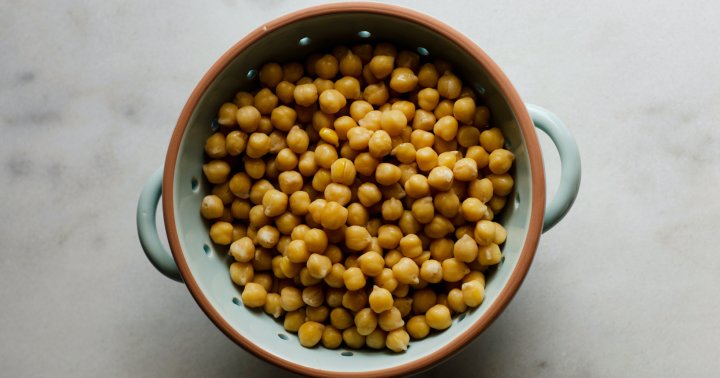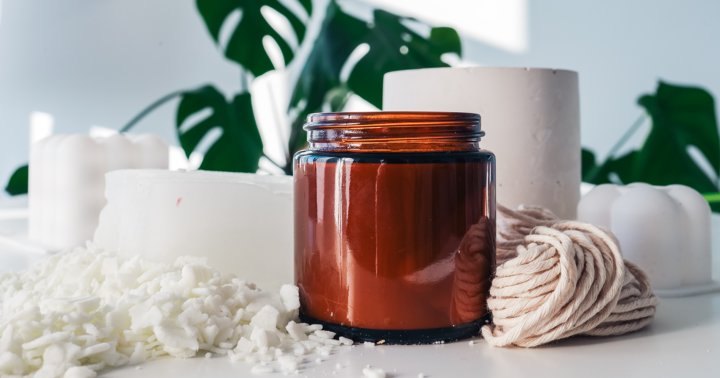PSA: These Foods Can Increase Your Risk Of Vaginal Infections
What we eat affects just about every part of our body—including the vagina.

Image by Lumina / Stocksy September 17, 2024 We carefully vet all products and services featured on mindbodygreen using our Our selections are never influenced by the commissions earned from our links. What we eat affects just about every part of our body—including the vagina. The vaginal microbiome, or flora, is a micro-ecosystem1 in constant flux. Its makeup changes throughout the menstrual cycle and in response to different lifestyle factors, but healthy bacteria, specifically Lactobacillus, are essential for keeping it in balance. Certain foods may disrupt the vaginal microbiome, increasing your risk of vaginal infections like bacterial vaginosis (BV), candidiasis (yeast infection), and urinary tract infections (UTIs). “Certain foods can cause vaginal infections due to their effects on hormonal balance, immune function, and the vaginal microbiome,” says Melanie Bone, MD, a consultant OBGYN and US Medical Director at Daye. “For example, foods high in sugar can promote the growth of yeast, while processed foods can disrupt the balance of vaginal flora.” If you’re prone to vaginal infections, tweaking your diet may help. Here’s a look at little-known foods that might disrupt your vaginal microbiome and what you can do to prevent future vaginal infections. 
Lesser-known foods that may cause vaginal infections
Here are some foods and drinks you may not know are affecting your vaginal microbiome.
Caffeine
This may come as a shock to coffee and energy drink lovers, but caffeine may affect your vaginal microbiome.
In addition, a 2022 study found that caffeine may cause yeast infections6, specifically an overproduction of Candida albicans. Research shows that Candida albicans is the most prevalent fungus7 in the body.
It is an opportunistic fungus that can lead to infections from pre-disposing factors, such as caffeine consumption.
Alcohol
While drinking alcohol in moderation shouldn’t have a significant impact on your vaginal health, excessive consumption may increase your risk of bacterial vaginosis, according to a 2021 study8.
“Alcohol can disrupt the balance of vaginal flora and weaken the immune system, making it easier for infections like yeast and bacterial vaginosis to occur,” Dr. Bone explains.
Besides vaginal infections, a 2023 research study found that high alcohol consumption could decrease sexual stimulation, cause vaginal dryness, dyspareunia (painful sex), and difficulties reaching orgasm.
Fermented foods
However, eating too many fermented foods may cause more harm than good.
For example, if you overeat yogurt that contains added sugars, the sugars can cause yeast overgrowth in the vagina, potentially leading to infection.
Undercooked food
Be sure that any meat you eat is fully cooked, as you might expose yourself to a urinary tract infection (UTI).
If you consume undercooked ground beef, pork, lamb, steaks, and beef roast that hasn’t reached a safe internal temperature, you can develop E. coli infection.
According to an older review of studies12, there is a strong association between food-borne bacteria like Escherichia coli (E. coli) and UTIs.
6 tips for preventing vaginal infections
Below are some ways you can adjust your diet to prevent vaginal infections:
The takeaway
Your vaginal microbiome is prone to many infections from your dieting and lifestyle habits.
Research reveals caffeine, alcohol (in excessive amounts), and fermented and undercooked foods may increase your risk of developing common vaginal infections like bacterial vaginosis (BV), candidiasis (yeast infection), and urinary tract infections (UTIs).
You can lessen your chances of getting a vaginal infection by adjusting your diet to include healthier foods and beverages.
If dietary changes don’t improve your vaginal health, please seek medical advice from a healthcare provider.

 KickT
KickT 































